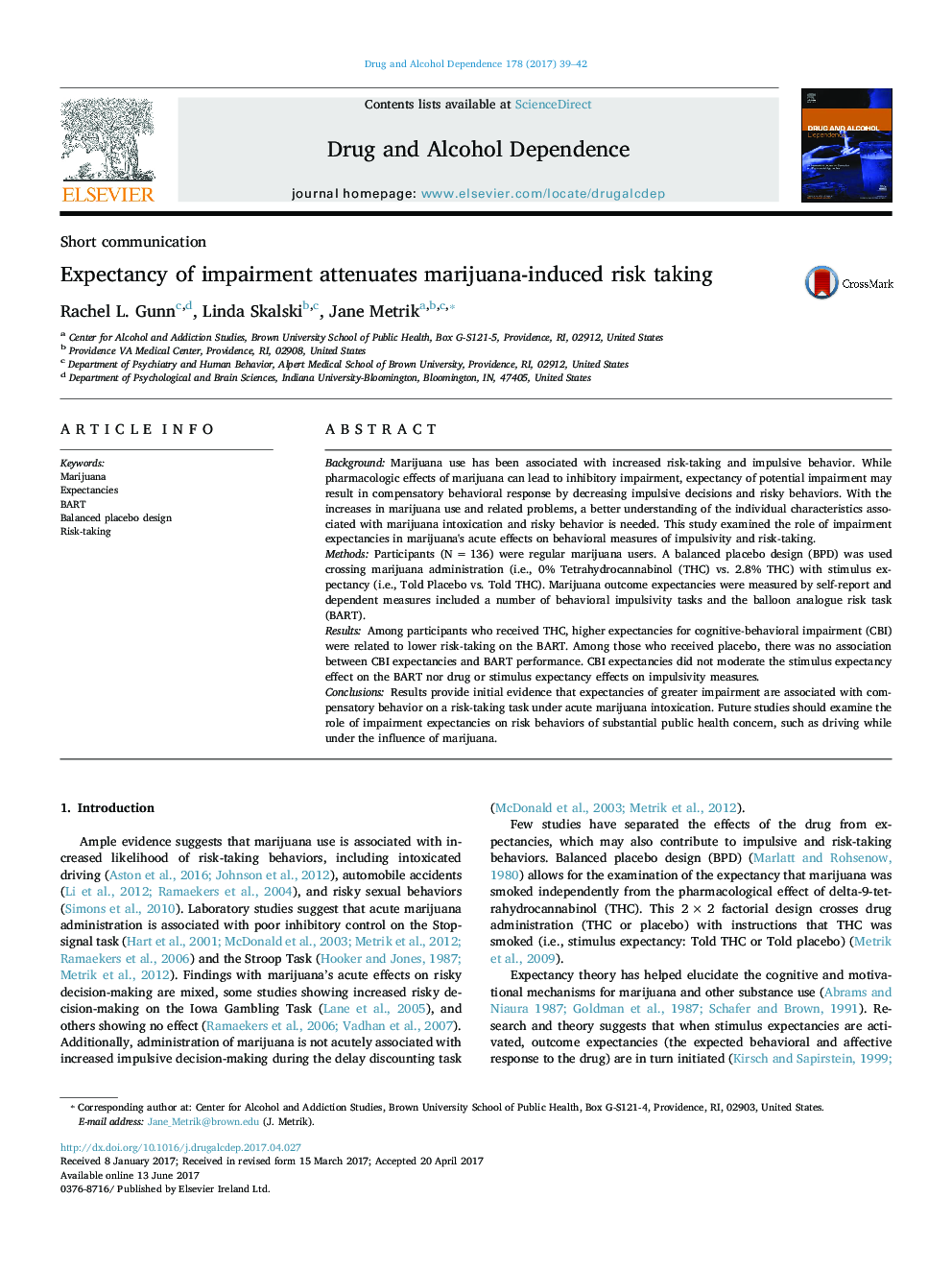| کد مقاله | کد نشریه | سال انتشار | مقاله انگلیسی | نسخه تمام متن |
|---|---|---|---|---|
| 5120392 | 1486113 | 2017 | 4 صفحه PDF | دانلود رایگان |
- Expectancy of marijuana's impairment attenuated marijuana's effect on risk taking.
- Under Tetrahydrocannabinol (THC), higher impairment expectancies were related to lower risk taking.
- Under placebo, this association was not present.
- Impairment expectancies predict compensatory behavior under the influence of THC.
BackgroundMarijuana use has been associated with increased risk-taking and impulsive behavior. While pharmacologic effects of marijuana can lead to inhibitory impairment, expectancy of potential impairment may result in compensatory behavioral response by decreasing impulsive decisions and risky behaviors. With the increases in marijuana use and related problems, a better understanding of the individual characteristics associated with marijuana intoxication and risky behavior is needed. This study examined the role of impairment expectancies in marijuana's acute effects on behavioral measures of impulsivity and risk-taking.MethodsParticipants (NÂ =Â 136) were regular marijuana users. A balanced placebo design (BPD) was used crossing marijuana administration (i.e., 0% Tetrahydrocannabinol (THC) vs. 2.8% THC) with stimulus expectancy (i.e., Told Placebo vs. Told THC). Marijuana outcome expectancies were measured by self-report and dependent measures included a number of behavioral impulsivity tasks and the balloon analogue risk task (BART).ResultsAmong participants who received THC, higher expectancies for cognitive-behavioral impairment (CBI) were related to lower risk-taking on the BART. Among those who received placebo, there was no association between CBI expectancies and BART performance. CBI expectancies did not moderate the stimulus expectancy effect on the BART nor drug or stimulus expectancy effects on impulsivity measures.ConclusionsResults provide initial evidence that expectancies of greater impairment are associated with compensatory behavior on a risk-taking task under acute marijuana intoxication. Future studies should examine the role of impairment expectancies on risk behaviors of substantial public health concern, such as driving while under the influence of marijuana.
Journal: Drug and Alcohol Dependence - Volume 178, 1 September 2017, Pages 39-42
